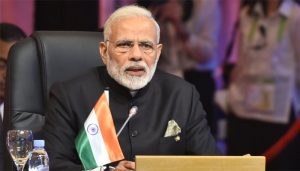Prompt Corrective Action
- To ensure that banks do not go bust, RBI has put in place some trigger points to assess, monitor, control and take corrective actions on banks, which are weak and troubled. The process or mechanism under which such actions are taken is known as Prompt Corrective Action
- RBI has set trigger points based on Capital to Risk Weighted Assets
CRAR (a metric to measure balance sheet strength), Non-Performing Assets (NPA) and Return on Assets (RoA). - Based on each trigger point, the banks have to follow a mandatory action plan
What will a bank do if PCA is triggered?
- Banks will not be allowed to renew or access costly deposits or take steps to increase their fee-based income.
- Banks will also have to launch a special drive to reduce the stock of NPAs and contain generation of fresh NPAs.
- They will also not be allowed to enter into new lines of business.
- RBI will also impose restrictions on the bank on borrowings from interbank market.
Monetary Policy Committee
- The Monetary Policy Committee (MPC) is the body of the RBI, headed by the Governor of RBI, responsible for taking the important monetary policy decision about setting the repo rate.
- Repo rate is ‘the policy instrument’ in monetary policy that helps to realize the set inflation target by the RBI.
- The Monetary Policy Committee (MPC) is formed under the RBI with six members. Three of the members are from the RBI while the government appoints the other three members.
- The Reserve Bank of India (RBI) in its first bimonthly policy review for financial year 2018-19 has decided to maintain status quo in policy rates by keeping repo rate unchanged at 6.0%.
Shangri-La Dialogue
- The Shangri-La Dialogue (SLD) is a “Track One” inter-governmental security forum held annually by an independent think tank, the International Institute for Strategic Studies (IISS) which is attended by defense ministers, permanent heads of ministries and military chiefs of 28 Asia-Pacific states.
- The forum gets its name from the Shangri-La Hotel in Singapore where it has been held since 2002.
- The summit serves to cultivate a sense of community among the most important policymakers in the defence and security community in the region.
Citizenship (Amendment) Bill, 2016
- The Citizenship Amendment Bill seeks to allow illegal migrants belonging to the Hindu, Sikh, Buddhist, Jain, and Parsi or Christian religious communities coming from Afghanistan, Bangladesh or Pakistan to not be imprisoned or deported.
- It aims to amend the Citizenship Act 1955.
- It also appeals for the minimum years of residency in India to apply for citizenship to be lessened from at least 11 to six years for such migrants.
- The Bill, however, does not extend to illegal Muslim migrants. It also does not talk about other minority communities in the three neighboring countries, such as Jews, Bahais etc.
- The Bill provides that the registration of Overseas Citizen of India (OCI) cardholders may be cancelled if they violate any law.
How does one get Indian Citizenship at the moment?
- Anybody who is born in India, has an Indian parent, or has lived in India for over 11 years, is eligible for Indian citizenship. At present, illegal migrants to do not fit this category.
National Register of Citizens
- It is a list of Indian citizens, which is meant to decide who is a bona fide Indian citizen, and those who fail to enlist in the register will be deemed illegal migrants.
- First list was made in 1951 across India according to the census of that year.
- It is for the first time that it is being updated and that too only in Assam.
- National Register of Citizens (NRC) updation means the process of enlisting the names of those persons (or their descendants) whose names appear in any of the Electoral Rolls up to 1971, 1951 NRC or any of the admissible documents stipulated.
- This exercise is undertaken to distinguish between Indian citizens and illegal migrants in Assam.
Vision of SAGAR
SAGAR (Security and Growth for All in the Region)
- Ensuring peace, stability and prosperity is India in Indian Ocean region.
- It is a maritime initiative, which gives priority to Indian Ocean region.
- Goal is to seek a climate of trust and transparency; respect for international maritime rules and norms by all countries; sensitivity to each other`s interests; peaceful resolution of maritime issues; and increase in maritime cooperation.


